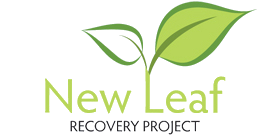What Did ‘Rat Park’ Teach Us About Addiction?

The ‘Rat Park’ experiment is well known within the world of researching addiction, and its findings revolutionised the way scientists viewed addiction to substances.
Dr Bruce Alexander, the American psychologist behind the study, wanted to examine the relationship between the substance and the person, as well as the reasons behind addiction.
The understanding of addiction gained by the ‘Rat Park’ experiment, if properly implemented within society, would massively benefit many who struggle with addiction.

What Is ‘Rat Park’?
The infamous ‘Rat Park’ experiment, conducted in the 1970s, was actually a follow-up study to test another variable. The original study placed rats in a cage, alone, and gave them the option of two bottles to drink from: one bottle with water, and the other bottle with a morphine hydrochloride solution. They found that the rats would excessively drink from the morphine-laced bottle until they overdosed and died.
Dr Alexander looked at the results of this study and wondered what would happen if the rats were no longer alone in a cage, would the results change?
He designed what he called ‘Rat Park’, a place with plenty of other rats where they could play, socialise, and mate. His experiment found that the rats had a preference for the plain water; they occasionally drank from the morphine-laced bottle, however, they didn’t use it obsessively and never overdosed.
Real-Life Implications of the Rat Park Experiment
This experiment helped society to understand that addiction is about more than a reliance on a substance and that there are other factors, outside of a biological addiction, that can play a part.
It shows that when rats have entertainment and aren’t isolated, they don’t choose to excessively get high on the morphine-laced solution. Relating this to human implications, people suffering from loneliness or a lack of activities, such as unemployment, would be more inclined to partake in substance abuse.
This highlights the need to look at a person’s environment and personal circumstances when treating their addiction, as getting to the root and cause of the addiction could be the solution to overcoming an addiction.
How Can ‘Rat Park’ Help You?
If you’re struggling with an addiction, then learning from the results of the ‘Rat Park’ experiment could help you to look outside of yourself and reach out for help, as you don’t need to battle your addiction alone. Having a community around you and putting efforts into hobbies, family and friendships could help move your focus away from your addiction and onto the positive things in your life.
Get Support for Your Substance Addiction With New Leaf Recovery
While there are common factors that can lead to an addiction, it’s never a one-size fits all approach when working through your substance addiction.
Get in touch with us at New Leaf Recovery to take the next step in your battle with addiction. Or if there’s someone who you know is struggling, a friend or a loved-one, we have support systems for family and friends too.
Receive a Free Call Back
"*" indicates required fields
Our Complete Recovery Journey - from your initial enquiry, all the way through treatment and beyond into ongoing support, New Leaf Recovery are there to guide and support you.
New Leaf offers a complete journey of treatment - from initial detoxification and rehabilitation to ongoing support, including aftercare, family support, and beyond into long-term recovery.
Getting the right accommodation enables us to provide the right backdrop for our recovery methods. Any form of rehabilitation needs to happen in a safe, comfortable, secure and friendly environment.
Receive a Free Call Back
"*" indicates required fields










